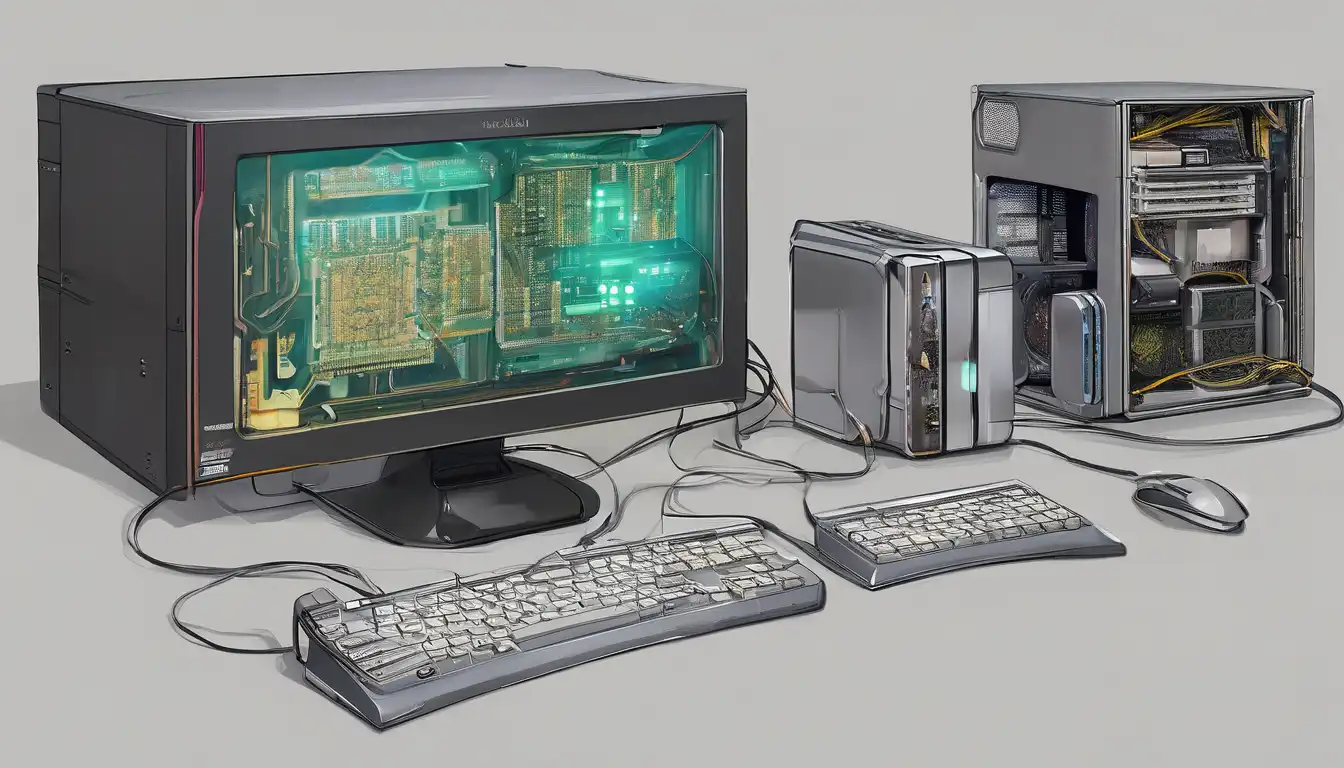Revolutionary Advances in Computer Hardware Technology
The computer hardware landscape is undergoing unprecedented transformation, with innovations emerging at an accelerated pace. From quantum computing breakthroughs to AI-optimized processors, the latest developments are reshaping how we interact with technology. These advancements promise to deliver unprecedented performance, efficiency, and capabilities that were once confined to science fiction.
Next-Generation Processor Technologies
The heart of computing continues to evolve with remarkable processor innovations. Chip manufacturers are pushing beyond traditional silicon limitations with 3D stacking technology and advanced node processes. The latest processors feature heterogeneous architectures that combine high-performance cores with efficiency cores, optimizing power consumption while maintaining peak performance. These developments are particularly crucial for AI computing applications that demand massive parallel processing capabilities.
Quantum computing represents perhaps the most revolutionary advancement in processor technology. While still in early stages, quantum processors are demonstrating capabilities that could solve complex problems exponentially faster than classical computers. Major tech companies are investing billions in quantum research, with recent breakthroughs showing promising results in cryptography, drug discovery, and complex system simulations.
Memory and Storage Revolution
Memory technology has seen dramatic improvements in both speed and capacity. DDR5 memory modules now offer double the bandwidth of previous generations, while new non-volatile memory technologies are blurring the lines between RAM and storage. These innovations enable faster data access and improved system responsiveness across all computing applications.
Storage solutions have transformed with the advent of PCIe 5.0 SSDs that deliver read/write speeds exceeding 10,000 MB/s. The latest storage technologies include:
- QLC NAND flash memory offering higher densities at lower costs
- Optane memory providing near-RAM speeds for persistent storage
- 3D XPoint technology revolutionizing data center storage
- NVMe-oF enabling network-attached storage with local SSD performance
Graphics Processing Unit Innovations
GPU technology continues to advance beyond gaming applications, becoming essential for AI training, scientific computing, and professional visualization. The latest GPUs feature ray tracing acceleration, AI-powered upscaling, and massive parallel processing capabilities. These developments are crucial for machine learning workloads that require immense computational power.
Recent GPU architectures incorporate dedicated AI processors that accelerate neural network operations. This specialization allows for real-time AI processing in applications ranging from autonomous vehicles to medical imaging. The integration of AI capabilities directly into GPU hardware represents a significant leap forward in computational efficiency.
Advanced Cooling Solutions
As hardware components become more powerful, thermal management has become increasingly critical. Innovative cooling technologies are emerging to address heat dissipation challenges. Liquid cooling systems have evolved from exotic enthusiast solutions to mainstream options, with all-in-one units becoming more affordable and reliable.
Phase-change cooling and immersion cooling technologies are gaining traction in data centers and high-performance computing environments. These advanced cooling methods enable higher clock speeds and sustained performance without thermal throttling. The development of more efficient thermal interface materials and heat spreaders has also contributed to improved thermal management across all hardware categories.
Connectivity and Interface Breakthroughs
The latest hardware innovations extend to connectivity standards that enable faster data transfer and improved peripheral integration. USB4 and Thunderbolt 4 technologies provide unprecedented bandwidth for external devices, while Wi-Fi 6E and upcoming Wi-Fi 7 standards deliver wireless performance rivaling wired connections.
PCIe 6.0 specification promises to double the bandwidth of PCIe 5.0, enabling even faster storage and expansion card performance. These connectivity advancements are essential for supporting the increasing demands of modern applications and data-intensive workloads.
Power Efficiency and Sustainability
Hardware innovation isn't solely focused on performance—power efficiency has become a critical consideration. New power management technologies dynamically adjust voltage and frequency based on workload demands, significantly reducing energy consumption without compromising performance. These efficiency improvements are vital for mobile devices and large-scale computing installations where power consumption directly impacts operational costs and environmental impact.
Sustainable manufacturing practices are also becoming more prevalent in hardware production. Companies are increasingly using recycled materials and developing more energy-efficient manufacturing processes. The industry is moving toward circular economy principles, with improved repairability and upgradeability becoming key design considerations.
Emerging Hardware Technologies
Several emerging technologies promise to reshape computing hardware in the coming years. Neuromorphic computing, which mimics the human brain's neural structure, offers potential breakthroughs in energy efficiency and pattern recognition. Photonic computing, using light instead of electricity for data transmission, could revolutionize data center infrastructure and high-performance computing.
Memristor technology and other non-von Neumann architectures are exploring new approaches to computation that could overcome current limitations. These experimental technologies, while still in research phases, represent the future direction of hardware innovation and could lead to paradigm shifts in computing capabilities.
Impact on Various Industries
The latest hardware innovations are transforming industries across the spectrum. Healthcare benefits from accelerated medical imaging and drug discovery processes, while financial services leverage high-frequency trading capabilities. The entertainment industry utilizes advanced graphics for realistic visual effects, and scientific research benefits from unprecedented computational power for complex simulations.
These hardware advancements are enabling breakthroughs in artificial intelligence, autonomous systems, and quantum computing research. As hardware capabilities continue to evolve, they will unlock new possibilities across all sectors of the economy, driving innovation and creating new opportunities for technological advancement.
Future Outlook and Trends
The pace of hardware innovation shows no signs of slowing, with several key trends shaping future developments. Heterogeneous integration, combining different chip technologies in single packages, will become more prevalent. Specialized accelerators for specific workloads will continue to emerge, optimizing performance for particular applications.
Quantum-classical hybrid systems are expected to become practical within the next decade, combining the strengths of both computing paradigms. As Moore's Law approaches physical limits, innovation will shift toward architectural improvements, specialized hardware, and software-hardware co-design approaches that maximize efficiency and performance.
The computer hardware revolution continues to accelerate, delivering capabilities that were unimaginable just a few years ago. These innovations are not merely incremental improvements but represent fundamental shifts in how we approach computing. As hardware technology continues to evolve, it will enable new applications and capabilities that will transform our relationship with technology and expand the boundaries of what's possible in the digital age.
